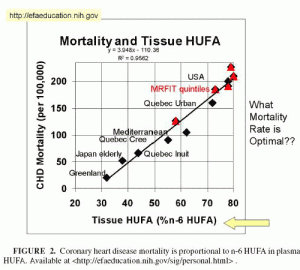At her health site Goop.com, Gwyneth Paltrow recently revealed that a broken leg she suffered several years ago was due to osteopenia, or brittle bone disease, possibly caused by sun avoidance and low vitamin D:
I suffered a pretty severe Tibial plateau fracture a few years ago (requiring surgery) which led the orthopaedic surgeon to give me a bone scan, at which point it was discovered I had the beginning stages of osteopenia. This led my western/eastern doctors in New York to test my Vitamin D levels, which turned out to be the lowest they had ever seen (not a good thing). I went on a prescription strength level of Vitamin D and was told to … spend a bit of time in the sun! I was curious if this was safe, having been told for years to stay away from its dangerous rays, not to mention a tad bit confused. [1]
Low vitamin D can certainly cause osteopenia and fractures. Bone density is highest and fracture rates lowest when serum 25(OH)D levels are between 32 and 45 ng/ml. [2] (As an aside, 25(OH)D levels should be tested routinely. It’s remarkable that Paltrow’s doctors waited until she had fractured a bone to measure her vitamin D levels.)
In Paltrow’s case, however, it’s quite likely that other nutritional and dietary deficiencies were also at work.
For 11 years Ms. Paltrow has avoided meat and dairy and eaten a macrobiotic diet in which most calories come from grains and legumes – two of the toxic foods that the PerfectHealthDiet counsels avoiding.
Grain consumption has long been known to damage vitamin D status and bone health. Indeed, it is difficult to induce bone frailty in laboratory animals without feeding them grain. In Edward Mellanby’s original experiments leading to the discovery of vitamin D, he induced rickets by feeding dogs a diet of oats or wheat bread. [3] In human infants, wheat bran induces rickets. [4] In addition to interfering with vitamin D, grains also contain high levels of phytic acid, which interferes with bone mineralization by blocking absorption of calcium and magnesium.
Another crucial factor in bone health is vitamin K2. Since dairy fats are the leading source of vitamin K2, it’s likely Ms. Paltrow was deficient in this crucial vitamin. Most people are deficient in vitamin K2 – let alone those who avoid meats and dairy. In clinical trials, vitamin K2 supplementation reduced non-vertebral fractures by a remarkable 81%. [5]
Given Paltrow’s avoidance of animal fats, it’s likely that omega-6-rich vegetable oils were an outsized share of her diet, and fatty seafood a small share. But a high omega-6 to omega-3 ratio reduces bone density. [6]
The long and the short of it is that Ms. Paltrow would benefit from more meat, more fat, more fat-soluble vitamins, and fewer grains and legumes. A commenter in Britain’s Daily Mail quipped:
Maybe if she started having a nice juicy steak for dinner each day instead of the poached peelings from half an apple … [7]
Hyperbolic, no doubt, but good advice!
[1] Gwyneth Paltrow, June 17, 2010, http://www.goop.com/?page=newsletter_vn&id=177. Hat tip Frank Hagan, http://www.lowcarbage.com/2010/06/27/gwyneth-paltrow-and-osteopenia/.
[2] Bischoff-Ferrari HA et al. Positive association between 25-hydroxy vitamin D levels and bone mineral density: a population-based study of younger and older adults. Am J Med. 2004 May 1;116(9):634-9. http://pmid.us/15093761.
[3] Mellanby E. (March 15 1919) An experimental investigation on rickets. The Lancet 193(4985):407-412.
[4] Zoppi G et al. Potential complications in the use of wheat bran for constipation in infancy. J Pediatr Gastroenterol Nutr. 1982; 1(1): 91-5. http://pmid.us/6310074.
[5] Cockayne S et al. Vitamin K and the prevention of fractures: systematic review and meta-analysis of randomized controlled trials. Arch Intern Med. 2006 Jun 26;166(12):1256-61. http://pmid.us/16801507.
[6] Watkins BA et al. Dietary ratio of n-6/n-3 PUFAs and docosahexaenoic acid: actions on bone mineral and serum biomarkers in ovariectomized rats. J Nutr Biochem. 2006 Apr;17(4):282-9. http://pmid.us/16102959. Watkins BA et al. Dietary ratio of (n-6)/(n-3) polyunsaturated fatty acids alters the fatty acid composition of bone compartments and biomarkers of bone formation in rats. J Nutr. 2000 Sep;130(9):2274-84. http://pmid.us/10958824.
[7] “Gwyneth Paltrow: I’m suffering from brittle bone disease,” Daily Mail, June 26, 2010, http://www.dailymail.co.uk/tvshowbiz/article-1289644/Gwyneth-Paltrow-Im-suffering-brittle-bone-disease.html.












Recent Comments